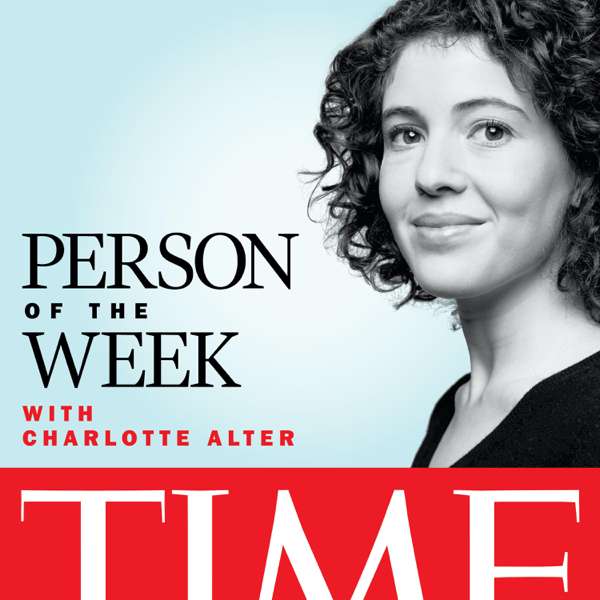Emily Burton lives in Georgia, is barely 5” tall and has a thick southern accent. She’s pretty far from what you would coin as a stereotypical “fashionista”. But she’s a spitfire of a woman and through pure perseverance and hard work, built an event planning company that now works with brands at New York Fashion Week.
Her journey is long an inspiring, from the days she lived paycheck to paycheck and knocked on boutique doors to offer pro bono styling, she tells it all in this interview. Emily has faced a lot of no’s and has had many opportunities to give up, but her sheer passion and drive led her to success.
Whether you want a behind the scenes glimpse at what it’s like to be behind the scenes at New York Fashion Week
In the interview (which you'll love) we will cover:
- The overview of Emily’s rich history in all things design, and how she landed as an event planner and stylist for New York Fashion Week
- How having the guts to work *pro-bono* showcased her talents and proved her skill
- Why she always has contracts--even (especially) when it’s pro-bono work
- How starting small got her on the right track
- Why her mentality and never taking “no” for an answer is something we should ALL be doing
- The BTS of planning, styling, designing, and coordinating New York Fashion Week
- How New York Fashion Week and the goal of the designers have changed over the years
- Emily’s role in relation to the designer in the design process
- How Emily turned “Nos” into “Not right now,” and persevered until she was successful
- Emily’s opinion on taking time for yourself mentally and emotionally and how to take care of yourself first
START SMALL
Emily Burton does event planning and styling for New York Fashion Week. BIG WOWs. But Emily started off so small--she lived paycheck to paycheck back when she first got started, and she had to literally go knocking door-to-door to find people she could do free work for just to get exposure, portfolio work, and resume experience. Emily came from an interior design background, and after a while, she got bored with it and wanted a change. In this episode of the podcast, she talks about that change--how she did it, and how it didn’t come easily. There were a lot of tears, no’s, and moments when she wanted to give up.
Emily lives in a small town in Georgia--not a fashion hub! And she makes her career work. Yes, she travels--but she does most of it from home! I mention this because I say this all the time--you can work in the fashion industry anywhere. Persevere, have confidence, and keep working hard, and you really can make it work. Emily’s story is inspiring in so many ways, but especially for this reason--she doesn’t take “no” for an answer, and she’s making it happen for herself. Emily is a passionate woman, and she does a great job of pulling back the curtain and sharing the unfiltered truth.
After majoring in interior design in school, Emily worked as an interior designer in Atlanta doing commercial and residential. After the economy crashed, losing her job, and moving for a new job that she hated, she knew she had to get back to design. When she saw The Wedding Planner (that J-Lo movie), she fell in love with the idea of event planning, and knew that was where she wanted to go. She wanted to be the “interior designer for your event,” because, as Emily says, “Fashion and the event industry is really a happy marriage.”
So she did what any hard-working, passionate woman would do: she worked for free. She knocked on doors, offered her styling and planning services, and kicked ass doing it so that she could build up her portfolio and gain exposure. She would pay photographers and models with her own money when she had to, because she wanted them to know that she valued them, knowing that karma would have her back in the future. “If you create a positive working relationship with your vendors, they’ll want to work with you, and they won’t feel used.” She built experiences, built relationships, and then started getting local contracts to shoot mini magazines, which turned into more referrals, and then the dominoes toppled.
HOW TO START CHARGING WHAT YOU’RE WORTH
Emily talks about the intricacies of transitioning from working for free to asking to be paid for said work. Yes, she says, it was a struggle. You have to be strategic. What she did was make her craft more tangible--she always let her customers know the exact value of what she was giving them--on paper so they could see. “To get your foot in the door, you can’t disclude doing pro bono work.” But don’t do too much, she says--set a cap for each year, and don’t go over it. Do it on your terms.
Emily is full of great advice that she’s lived and succeeded by. You reap what you sow. Do a good job, treat people well, live your dreams, and do well. Fill up your pipeline and the cards will fall the way they may. And the one that kept coming up? The big one?
“Don’t take no for an answer. Instead, take it as not right now.”
Maybe it’s not the right time for something, for whatever reason. But believe in yourself, and try again in the future if it feels right. “Never take no for an answer of where you want to be in your career.”
NEW YORK FASHION WEEK
Since Emily set herself up for success in terms of putting herself out there and networking, she worked her way up to event planning for the big kahuna: New York Fashion Week. And it’s every bit of the “wild and crazy ride” that Emily says it is. There are 6-9 designers that come down the runway every day, split into two or three shows. Emily and her team are in charge of...everything. Gathering information, coming up with a concept, solidifying key vendors (venue, bartender, marketing materials, color concept and design).
Emily builds a team of front-of-house and back-of-house people, and there aren’t as many of them as you may think. But the timeline is airtight: there are spreadsheets and notebooks filled with minute-by-minute schedules of who is supposed to be where: models, hair and makeup artists, VIPs, publishing crews, production, and photography. She transfers her vision to a few notebooks and makes very specific vision boards so that the team can wrap their heads around the direction they’re going and SEE the end goal. It’s madness, but very well organized madness.
TEAMWORK
Emily has been hustling and working hard her whole life, and knows what she wants. She’s always made it a point to know the expectations, and exceed them. She expects that same dedication from her team of people that she works with--and strongly recommends that anyone working in the industry embrace the same dedication and drive. Certain companies require different things, different designers have preferences. Learn about your clients, and customize services for them. Develop trust in your relationships and make a good partnership. Doing an exceptional job by going above and beyond goes such a long way, and that alone is extremely valuable.
Emily’s strongest advice to people in the fashion industry? Never say never. Talk to people, knock on doors, and ask questions. And never feel guilty as an entrepreneur about having time to yourself!
Resources & People Mentioned

 Our TOPPODCAST Picks
Our TOPPODCAST Picks  Stay Connected
Stay Connected







